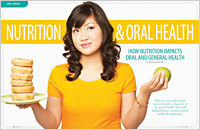Good Nutrition & a Healthy Mouth
How eating well keeps your teeth & gums healthy
People know how important brushing and flossing are to healthy teeth and a beautiful smile. Unfortunately, some people think as long as they’re faithful in the care of their teeth, what they eat doesn't matter. That’s not really the case. Good nutrition plays an important part in maintaining teeth and gums. The following vitamins and minerals found in natural sources will help you keep your teeth healthy and strong.
Calcium
Your teeth need calcium for structure. Enamel remineralization may be aided by calcium. Excellent sources for calcium include salmon, sardines, yogurt, cheese, milk, almonds, dark green leafy vegetables, edamame, broccoli rabe, tofu, black-eyed peas, sesame seeds, sunflower seeds, butternut squash, sweet potatoes, figs, oranges, carrots, and green beans. Incorporate some of these foods into your diet every day to increase your calcium intake.
Phosphorus
Calcium and phosphorus work together to build strong teeth and bones. Rich sources for phosphorus include sardines, tuna, salmon, cod, soybeans, lentils, and pumpkin seeds. Cheese, beef, and pork also contain phosphorus.
Vitamin D
Vitamin D, the sunshine vitamin, is essential to helping the body absorb calcium and boosts bone density. It may also contribute to enamel remineralization. The best sources for vitamin D include regular doses of sunshine, eggs, dairy products, and oily fish such as sardines and tuna. You don't need to get a sunburn or have long exposure to the sun to receive adequate amounts of vitamin D.
Vitamin C
Vitamin C is important to your overall oral health. It protects the early stages of gum disease (gingivitis), and strengthens the gums and soft tissue in the mouth. All of this helps to prevent your teeth from loosening. Citrus fruits are a rich source of vitamin C, and the vitamin can also be found in kiwi, leafy greens, bell peppers, chili peppers, bananas, blackberries, pineapple, broccoli, cabbage, tomatoes, and Brussels sprouts.
Vitamin A
Vitamin A is essential for keeping mucous membranes healthy, preventing dry mouth, and for aiding the mouth to heal quickly when injured or infected. Sources of vitamin A include leafy green vegetables, fish, egg yolks, pumpkins, carrots, sweet potatoes, cantaloupes, and apricots. The high levels of beta-carotene contained in these foods are converted into vitamin A.
Oral Health
Oral health affects more parts of the body than just your teeth. Your mouth is full of mostly harmless bacteria. Daily brushing and flossing and a healthy immune system keep bacteria under control. When good oral hygiene practices are neglected, the bacteria can lead to tooth decay and gum disease. Saliva helps to neutralize acids formed by bacteria that can lead to overgrowth and disease. Some medications (painkillers, antihistamines, decongestants, antidepressants, and diuretics) can reduce the flow of saliva. If you are taking any of these medications it's essential to make oral health care a priority. Some research studies suggest the inflammation associated with periodontitis (serious gum disease) may contribute to some diseases.
To enjoy good oral health, reduce the risk of cavities, and prevent gum disease you should brush and floss at least twice a day. When you can't brush immediately following a meal or snack, drink water to help rinse the mouth and teeth. It's very important to eat healthy foods, have regular checkups, and follow your dentist's directives regarding your overall oral health care.
Related Oral Health Articles
 Nutrition & Oral Health
Nutrition & Oral Health
Oral health is a huge part of our general health. In Part I of this important series, we will focus on diet as it relates to dental/oral health. Learn new important facts about sugars — the good and the bad; fluorides; tooth erosion by acids; and more... Read Article
 Pregnancy & Oral Health
Pregnancy & Oral Health
Pregnancy is generally thought of as the time when a woman strives to be particularly aware of the need for “health”. Many women though may not be aware of the link that exists between their oral health and their systemic (general) health, as well as the impact that many other factors can have on a developing child. Learn about how to care for yourself and your baby... Read Article


